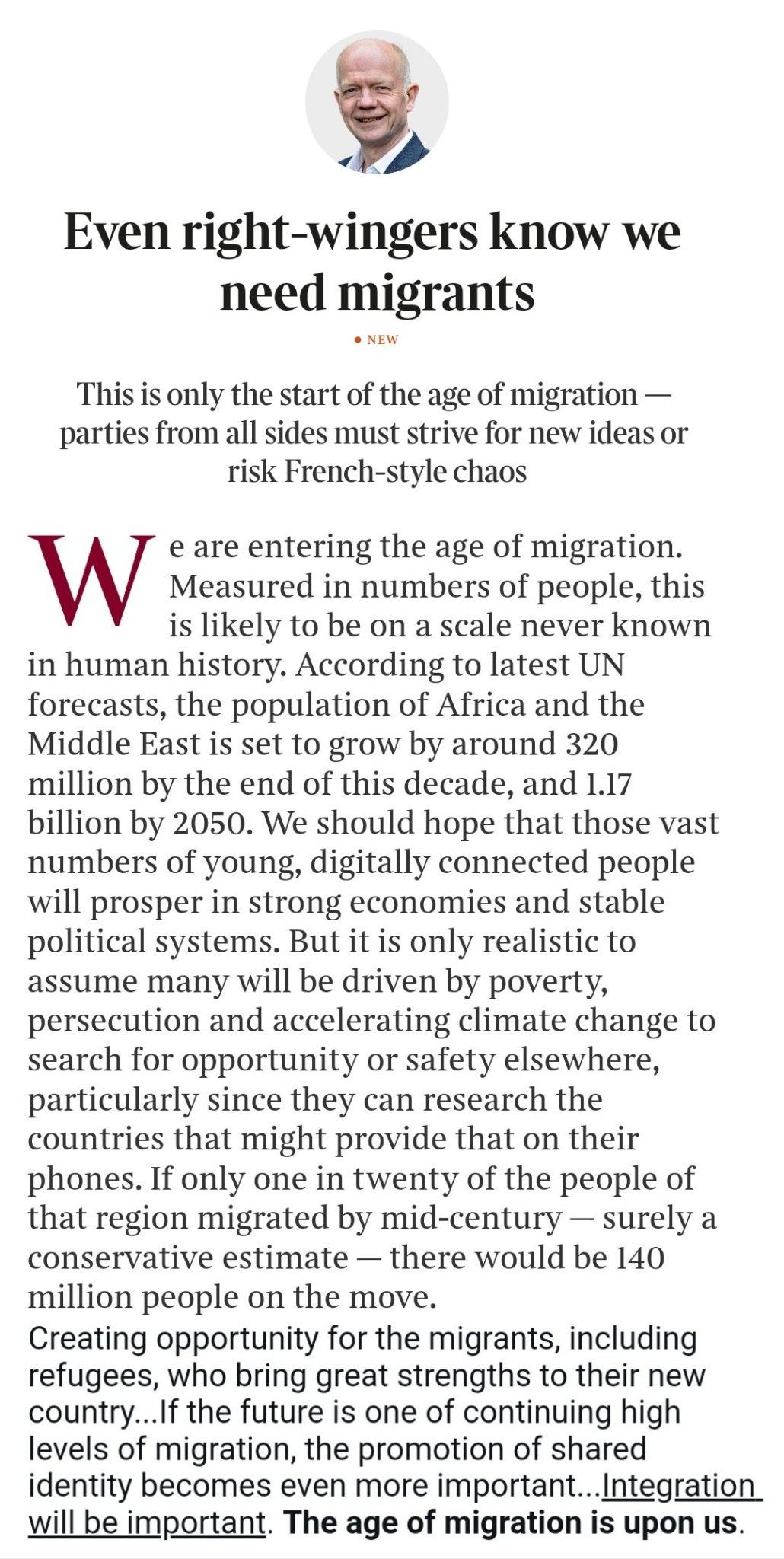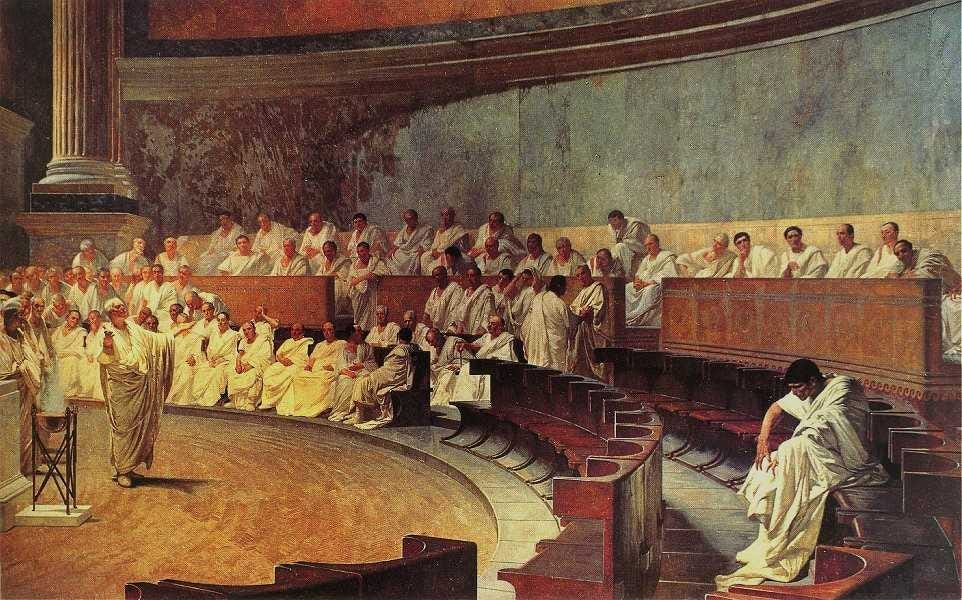I have dedicated much of my life to the discussion of ideas, particularly political ideas. Politics, elections, policy, philosophy, political theory and the like. It's important stuff, really. It decides how we see the world, one another and how we chart a shared future. There's a faction on the right, or at least that sees itself as on the right, which views this to be, really, man's highest end. Discussion, discourse, dialogue. Dialectic?
It's time for a talk about dialogue. Importantly, though, this will not be a dialogue, about dialogue. You don't get to speak. You get to listen, or rather, read.
One thing that I've come to really enjoy about writing here on Substack, and reading here too, is that you don’t have to do much playing pretend about the pretenses of the readers. Normally you would have to start every discussion at some sort of political midpoint and then work your way out towards getting to what you really want to say. It helps that most of my writing here has to do with rather obscure literature. Not all of it has, though. My longtime readers will remember that this blog started as a way to publish my screed against legalism, the so-called Spirit of the Merchant. After that, my next target was postmodernism; but not to assault it. Rather, to defend it from the position of the right.
This brief history is not merely an excuse to reference previous works and funnel my new readers to them (although that would be very clever), it is to illustrate that I have never been interested in speaking to people who do not already agree with me, or at least who do not share a similar perspective. What I do not do, ever, is speak to leftists.
The left exists as an anti-civilizational force whose goal is no less than the total obliteration of your life, family, nation, history, religion, ethnos, people, and the permanent erasure of all that ever came from any of it. And you want me to talk?
I wonder what we would talk about… breakfast, perhaps? But they did eat breakfast this morning.
And if we did talk, how would that go? In your mind’s eye, do you see me totally wrecking their argument with facts and logic? Perhaps they renounce their intentions, and capitulate to a Based Authoritarian Regime headed by yours truly? I think it's more likely that I end up being straw-manned while my ghoulish opponent makes the compassionate case for child sex abuse and for bringing in twelve families of Angolans to live in my bedroom who will totally not rape anyone.
I'm not interested in talking to people who see me rightly as their enemy and who I rightly see as mine. Of course, they could stop being my enemy by stopping their attempt to destroy the fabric of the society I live in, but we all play the cards we’re dealt I suppose. My goal is not actually, though, to win them over to my side. And my goal is certainly not to make sure that ‘whatever outcome’ we have goes through the democratic process. My goal is simple: to stop them.
When people say things like this man has, just as when they celebrate the industrial-scale mass murder of innocent unborn children to the false god of egoism or material wealth, the proper reply is not to invite them to an honest debate. The answer cannot be to give these diabolical plots the legitimacy of civil discourse. The answer is to reject entirely the premise and the person whole-cloth. What was just suggested is beyond the pale. I can’t believe you would be so disgusting. I won’t entertain such an evil suggestion. What we must attack most of all is the claim that these arguments are a part of respectable civil dialogue. If you establish no limits, if there is no conduct beyond the pale, simply nothing unbecoming, then you can and should expect anything. This is actually what is known traditionally as a constitution; those traditions and mores handed down over generations that establish a political regime and constitute the general scope and forms of political rule. A rising faction which sought to uproot that constitution, to act without limit, was doing more, it was understood, than simply altering the policy choices available to them; They were declaring a revolution on the very society which had produced the present moment, and attempting the subsumption of that society to their own exercise of power.
In some cases, this decision has been justified, as we feel Caesar was. The ossified structures of the old Republic had been so hollowed out that it didn't deserve to survive. But the Senators understood very clearly that this was, in fact, a conflict.
Let us look at Marcus Tullius Cicero. He spoke four major orations against Lucius Sergius Catilina, a Senator who sought to overthrow the Roman state. The Republic committed the grave crime of not electing Catiline! Cicero had four major orations against this wicked man- and four scathing orations at that. He, like the rest of the Senate had an understanding of civility and Senatorial discourse before resorting to violence as a method of finishing negotiations of both a diplomatic and a domestic sort. It was this generation of men who saw the final breakdown in Republican politics.
But why move from orations into calling up the arms of the state against Catiline? An already dreadful year in Roman political life meant that Catiline had potential allies in revolt. He had already planned to use boots in negotiation. The Senate only moved when the evidence left them no choice. When you hear that your enemy is going to make the streets run with your blood? Senatus consultum ultimum, let the war begin.
But then Catiline fled, and died in battle. His co-conspirators were executed (this would later cause Cicero problems), and his body was found among his soldiery after the failure of his uprising against the Republic. Negotiations went well for Cicero’s government through his field commanders. After the conspiracy, Catiline became almost a slur for treachery as Hannibal for a destroyer.
This story is not to say we ought to find leftists on the battlefield or use violence as negotiation when surely better options exist. I am no Consul, and neither are you. We should understand that speech is a tool which brings forth the virtues of politics, itself not the virtue of politics. Speech is a tool for good men in decent times. In wicked times it remains a tool for good men, but it must require political teeth.
There is indeed a point where dialogue must break down. It is not a good thing, either. We would like, and pray, that our opponents do not have such ghoulish opinions. We are in Cicero’s position, although with less iron to back up our moral authority. We already see their negotiation. Whether the street grunt throwing a bike chain at you, or the politician proscribing your town to decay into squalor; they already act against you. The Constitution has given way to the constitution, dear reader, and now even that gives way.
A degree of vulgarity is justified in reply, then. If the breakdown of political dialogue into personal accost is uncomfortable for those who no longer see their opponents grappling earnestly with their ideas, it is because they have been informed of their status as enemy, that their program has been deemed unacceptable. On the other hand, the more you address these men with decency and good faith, you invite into the world the idea that the destruction of your life and family is merely a chip to be played, if it is so deemed to fit the general welfare.
This is a point that for some time the left has understood better than the right. The willingness among the left to frame speech as violence is true. Speech conveys intentionality and affect to reality. The way someone speaks and what they speak to communicates the world they see, and how they intend to act on it. Because you share a world, the way they act matters to you. And because speech is communicative, it is the attempt to transmit meaning between people, what they are telling you about the world and so telling you what to believe about the world, also matters. If someone told you there was no train coming, and that you were safe to cross the tracks, but there was a train coming, this would matter very much to you.
The left understands this. They work overtime to have the views of ordinary people discussed in the media as beyond the pale. Then those ordinary people are branded extremists. Then, the conduct becomes subject to regulation either through the state with legislation or through the states’ market enforcement mechanisms: human resources departments. In a few short years, the given topic had moved from the commonly accepted opinion of most people, into a fire-able offense and an attack on our democracy.
Next time David French writes an essay as the token ‘conservative’ making the case for why the LGBTQ lobby should be able to molest your kids, or that you're not a real sophisticated Christian like him if you don't thank them for the pleasure, don't invite him to have a debate with you. Just tell him you hate him.
End of Discussion.






Nice and succinct post. I learned a long time ago that it was a waste of time to try to convince leftists of anything. Their way of view, of seeing the world, is just fundamentally different -- Anonymous Conservative likens these outlook differences to r/k selection theory. Lee Kuan Yew stated no matter how much better Singapore became through his methods, about 30% of the population remained diehard communists / communist supporters.
The relationship between regular people and their Leftist ruling class is like an abusive marriage with a drug-addicted narcissist. What is needed is not more discussion and compromise, but healthy boundaries and real consequences for the violation of those boundaries, with the understanding that divorce (including national divorce), while certainly painful, is sometimes the least bad option, when the alternatives amount to fates worse than death.